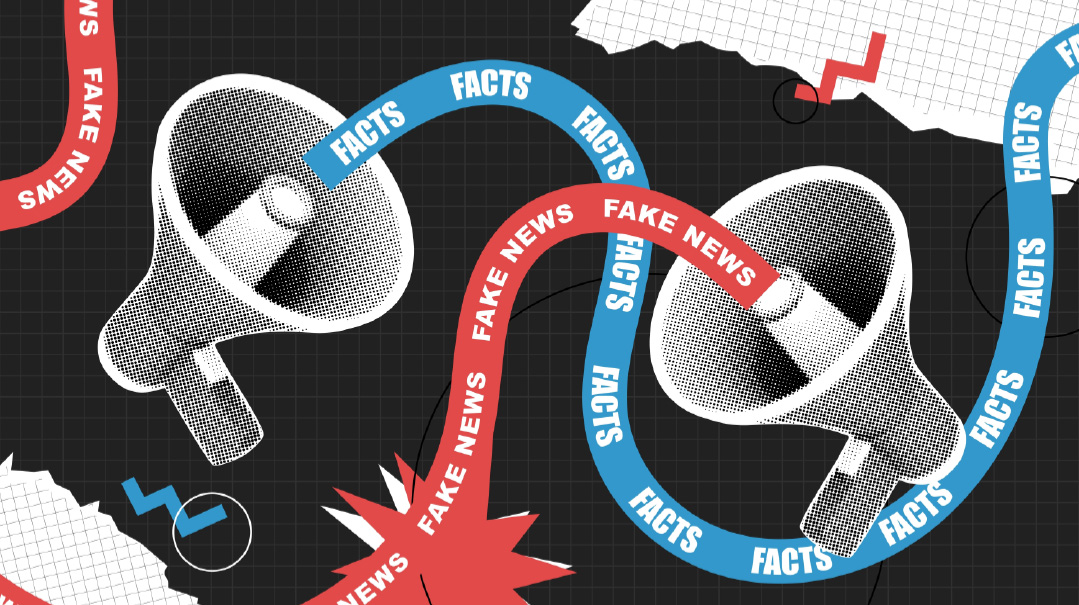The Misplaced Quest for Certainty

Why haven't more repurposed drugs been pressed into service against Covid?
Late last December, Ontario Province approved fluvoxamine for early treatment of COVID-19. Dr. Norman Doidge, a genuine polymath, tells the fascinating story of how an antidepressant was enlisted versus Covid in the January 22 Globe and Mail, in a long article with a long title — “Vaccines are a tool, not a silver bullet. If we’d allowed more scientific debate, we would have realized this earlier.”
Fluvoxamine is most commonly used to treat obsessive-compulsive disorder. The first clue that it might work as a “repurposed” drug came when health workers at a large mental hospital in Paris began contracting Covid at three times the rate of the mentally ill patients, even though the latter had far more risk factors. French psychiatrists began looking at records of over 7,000 patients in Paris mental hospitals, and found that those treated with serotonin inhibiting (SSRI) antidepressants were less likely to require intubation or die.
Meanwhile, Dr. Angela Reierson, a St. Louis child psychiatrist, confined to her home with Covid, recalled a study showing that fluvoxamine, an SSRI inhibitor, halted sepsis in mice. (Severe Covid resembles sepsis.) She contacted Dr. Eric Lenze, a colleague at Washington University Medical School who specializes in repurposed drugs, and he carried out the first randomized control experiment with Covid patients. Not one person treated with fluvoxamine deteriorated or suffered lung damage, whereas 8 percent of the placebo group did.
A larger Brazilian trial of 1,500 unvaccinated patients with Covid and one other high risk condition followed. Those given fluvoxamine were 66 percent less likely to require hospitalization compared to the control group, and 90 percent less likely to die.
WHY HAVEN’T MORE such repurposed drugs been pressed into service? Doidge wonders. After all, most such drugs have long been in use, and their safety profiles are thus well-established. Moreover, when they are generic drugs, they are far cheaper than new drugs being introduced by Big Pharma (a matter of particular concern to poorer countries).
One reason is economic. Repurposed drugs require drug company sponsorship to be approved by the FDA, and there is no incentive for drug companies developing their own drugs to sponsor a cheap, generic one.
But Doidge directs most of his attention to another explanation. Politicians, the mainstream media, and the general populace coalesced early in the pandemic around vaccines as the key to defeating Covid. Other measures, such as lockdowns, were mere stopgap measures until vaccines were available. As Bill Gates put in April 2020, “The ultimate solution, the only thing that really lets us go back completely to normal and to feeling good... is to create a vaccine.”
Dr. Doidge is no anti-vaxxer: He acknowledges that vaccines have saved many lives around the world and mitigated the seriousness of Covid in most of those vaccinated. He himself is vaccinated. But he views the idea that vaccines would “solve” the problem of Covid as heralding back to Francis Bacon, the 16th-century philosopher of science, who wrote of science as a tool “for the conquest of nature.” In the medical context, that conquest of nature is expressed in military metaphors, such as “the war against cancer,” “combating heart disease.” And today, vaccines are the key element in the battle plan to eradicate the enemy Covid.
In war, unity and a common vision are crucial. Dissenters are perceived as traitors. And the mixture of science with metaphors of war, argues Doidge, can often lead us to look to science to provide us with definitive answers and a clear battle plan. It is a task science cannot meet.
David Leonhardt writes in the February 11 New York Times that the assumption that expert opinion is a “unitary, omniscient force” lies behind calls “to follow the science.” In the context of Covid, writes Leonhardt, at most science highlights the trade-offs involved. But science alone cannot tell us which path to choose.
The vision of science as a “unitary, omniscient force” leads to claims of a consensus that does not exist, and to the suppression or downplaying of information at odds with that supposed consensus. Suspicions that the vaccines affect women’s cycles or create of risk of myocarditis in healthy young men only appear in the mainstream press long after they have been aired elsewhere. Scientists worried that repeated vaccines at short intervals might weaken the immune system are ignored, though it is far too early in the process to tell whether those worries are justified.
Yet Dr. Paul Offit, America’s most ardent vaccine proponent, acknowledges that he would advise his healthy 20-year-old son against a booster. And the two top scientists on the FDA’s review panel on vaccines resigned over what they viewed as the Biden administration’s pressure to approve boosters.
Above all, efforts to present a nonexistent consensus among all competent scientists is antithetical to the scientific method. The motto of the UK’s Royal Society, the first national society of science, is “Nullias in verba — Take nobody’s word for it.” The role of scientists, as defined by the Nobel Prize winning physicist Richard Feynman, is to question the experts and debate each experimenter’s conclusions, until the conclusion proves capable of resisting all onslaughts.
Reliance on censorship by itself, writes Doidge, automatically undermines any claim to speak in the name of science — and rather than increasing confidence in science, diminishes it. Yet throughout the Covid pandemic, major media platforms have conducted a nonstop onslaught on dissenting views and exerted efforts to shut down “misinformation,” even when that so-called misinformation came from leading scientists at Oxford, Harvard, and Stanford.
The Royal Society recently protested efforts by governments and social media platforms to combat harmful scientific misinformation via content removal. Such measures, concluded the Royal Society, only drive true misinformation to harder-to-address corners of the internet, while exacerbating feelings of distrust in authorities.
OMICRON HAS REVEALED that vaccines, for all their great value, were vastly oversold. In February 2021, Pfizer CEO Albert Bourla claimed that the Pfizer vaccine was still offering protection at six months and prevented transmission of the disease. Dr. Ugur Sahn, CEO of the company that developed the Pfizer vaccine, confidently predicted that Europe would achieve herd immunity through vaccination by July or August of last year.
Both men, it turned out, had gotten out over their skis. The existing research could not have supported those predictions. The initial Pfizer and Moderna studies were clinical studies of about 78,000 people combined. But their short duration — two months — provided no basis for assessing the vaccines’ long-range protection against serious disease and death. Even in the placebo groups, only one person died of Covid. Moderna admitted that an assessment of protection against death would require a study of five to ten times as many people and a duration five to ten times longer. Though in the real world 60 percent of the deaths were among those over 75, only 4.4 percent of those in the Pfizer study were in that age group.
The large number of breakthrough infections has caused the message that Covid is only an epidemic of the unvaccinated alone to fall flat, according to Harvard epidemiologist Michael Mina. And multiple studies have shown that the vaccinated are no less likely to transmit the Omicron variant than the unvaccinated.
Had more attention been paid to dissenting voices, the impossibility of achieving herd immunity would have been recognized earlier. Dr. Larry Brilliant, who helped eliminate smallpox through vaccines, nevertheless concluded in Foreign Affairs last July that nothing of the kind was achievable against COVID-19. Covid vaccines, unlike the smallpox vaccine, offer protection for only a limited amount of time, and thus repeated vaccinations are needed. The six-month data of Israel’s public health service showed that vaccine efficacy had dropped to 39 percent by then, and a Mayo Clinic study showed that the efficacy of two Pfizer doses dropped from 95 percent to 42 percent over six months.
That variants would develop was certain. Columbia virologist Vincent Racaniello worried in early 2021 that mRNA vaccines, which primarily target the virus’s spike protein, would prove easy to evade for those inevitable variants.
The natural immunity of recovered Covid patients suffers from no such limitation. One Israeli study showed that natural immunity results in 27 times less chance of reinfection and nine times less chance of hospitalization than vaccination. Dr. Carmit Cohen of the Sheba Medical Center has found that antibody levels decline faster among the vaccinated than among the naturally immune. And the potency of the antibodies of the naturally immune — avidity — rises to higher levels than the vaccinated.
Taken together, the impossibility of achieving herd immunity, the demonstration that the vaccinated can still transmit the virus, and the failure of most vaccine mandates to take into account natural immunity, combine to undermine the main pillars of the case for vaccine mandates.
Doidge nevertheless concludes on a tentatively optimistic note, as he reflects on all that has been learned about Covid in the last two years, through a frequent reappraisal of the governing assumptions, much of it by those initially in the minority. And with that recognition goes a call to “give infallibility the day off” so that we can go on reappraising and adding to our medical tool kit against Covid. Perhaps we can even learn to treat one another with respect rather than as mortal enemies.
(Originally featured in Mishpacha, Issue 899. Yonoson Rosenblum may be contacted directly at rosenblum@mishpacha.com)
Oops! We could not locate your form.






